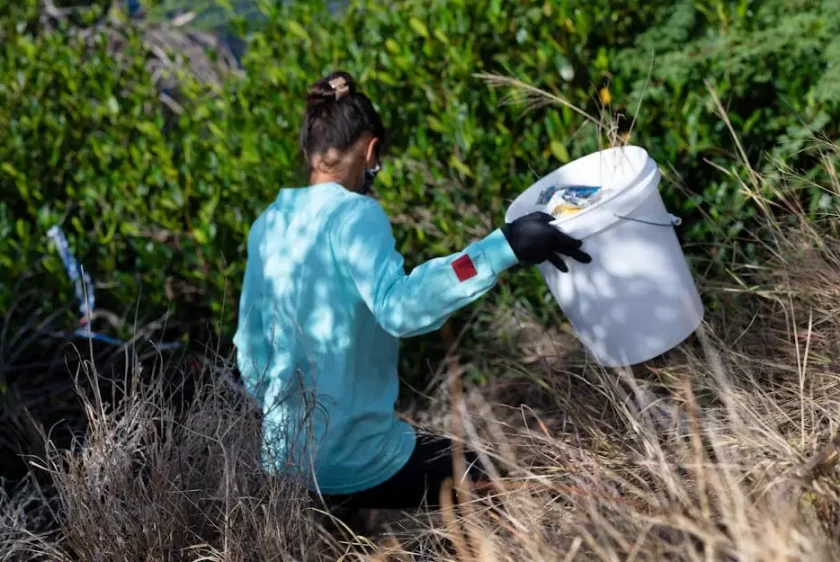
Eco-Friendly Air Conditioner Disposal Tips in the Bay Area
Getting rid of an old air conditioner can be a challenge, especially when you’re trying to be environmentally conscious. In the Bay Area, there are many options available to ensure that you dispose of your air conditioner in an eco-friendly manner. This guide will provide you with easy-to-follow tips that not only help you get rid of your unit but also protect our beautiful environment.
Understanding the Environmental Impact of Old Air Conditioners
Old air conditioners can contain harmful refrigerants that may contribute to ozone depletion. Understanding how these units impact the environment is the first step towards responsible disposal.
When considering an air conditioner’s lifecycle, it’s crucial to recognize not only the energy consumption during its use but also the effects felt once it’s no longer operational. Many units have refrigerants that are potent greenhouse gases. If not handled carefully, these substances can seep into the atmosphere, exacerbating climate change. So, it’s important to be informed about your options.
Did you know that improper disposal can release harmful materials into your local ecosystem? This makes it essential to approach disposal with care. From polluted soil to contaminated water sources, the repercussions of careless disposal can be widespread. Understanding these consequences can motivate you to choose a responsible disposal method.
In a rapidly changing climate, staying attuned to how our appliances affect the environment is increasingly important. We all have a part to play—if you’re pondering whether to throw away that old air conditioner, consider its entire impact. In doing so, we can each contribute to the health of our planet, one unit at a time.
Local Regulations for Air Conditioner Disposal
Before disposing of your air conditioner, it’s essential to know the local regulations in the Bay Area. This section will outline the rules you need to follow to ensure you’re compliant.
The Bay Area is home to specific laws regarding the disposal of electronic waste, including air conditioners. Local authorities actively regulate the handling of these units to prevent hazardous materials from contaminating the environment. Checking the official guidelines from your city or county can save you potential penalties and promote responsible disposal.
In many cases, specific collection days or designated drop-off locations for electronic waste are available. These services are often provided free of charge or for a minimal fee. Staying informed about such events not only helps you adhere to local laws but also fosters a community of environmentally conscious citizens. Always prioritize recycling over dumping—after all, every bit helps!
It’s a good idea to consult with your waste management provider for detailed information. They can provide you with insights on the best practices for air conditioner disposal in your area. Being proactive ensures you’re not just following the letter of the law, but also contributing positively to the community and environment.
Recycling Options: Finding the Right Facility
Recycling is one of the best ways to dispose of an air conditioner. Here, we’ll provide a list of local recycling facilities that accept air conditioning units and offer guidance on how to prepare your unit for recycling.
Finding the right recycling facility is more straightforward than it seems. Many community centers and environmental organizations in the Bay Area are equipped to handle electronic waste, including air conditioners. These facilities follow strict protocols to ensure the materials are processed safely and efficiently, keeping harmful substances out of the landfill.
Before making a trip to a recycling center, check their requirements. Some facilities may ask for specific preparation steps, such as removing certain components or draining refrigerants. Don’t hesitate to call ahead to confirm what’s needed. By doing this, you’re not only aiding the recycling process but also guaranteeing that you’re complying with environmental safety standards.
Additionally, many cities hold periodic recycling events specifically focused on electronics. This can be a fantastic opportunity to responsibly dispose of your air conditioner while also disposing of other electronic items you no longer need. By participating, you contribute to a collective push toward sustainability in your community.
Donation: Giving Your Old Unit a New Life
If your air conditioner is still working, consider donating it. This section will explore local charities and organizations that accept functional units to help those in need.
Donating a functioning air conditioner can provide a much-needed resource for families or community centers that may not have the financial means to purchase one. Many charitable organizations in the Bay Area, like Habitat for Humanity or local housing programs, are often grateful for your contribution. It’s a win-win situation: you get to declutter, and someone else gets a helping hand.
Another option is to look into local community groups, church organizations, or even schools that may benefit from donated units. Often, groups working to assist low-income families or shelters can directly distribute your donation to those in need swiftly, brightening someone’s day while keeping appliances out of landfills.
Professional Removal Services to the Rescue
If you’re unsure about how to dispose of your air conditioner yourself, professional removal services can help. We’ll discuss how to find a reputable service and what to expect from them.
Hiring a professional removal service can simplify the process of getting rid of your air conditioner. These services are trained to handle various types of units and ensure that they are disposed of responsibly, following local laws and regulations. Most importantly, they have the proper equipment to lift and transport the units safely, providing peace of mind to homeowners who might feel overwhelmed by the task.
When searching for a reputable service, look for reviews or recommendations from friends and family. Additionally, ensure they hold the necessary certifications in environmental compliance. This information will help you gauge their professionalism and commitment to eco-friendly practices. Often, a little research can save you time and heartache in the long run.
Once you’ve chosen a service, ask about their specific disposal methods. A transparent company will gladly explain how they responsibly recycle the units, providing you reassurance that your air conditioner will not contribute to landfill waste. In fact, many reputable services take pride in their sustainability efforts, so don’t shy away from asking these questions.
Tips for Setting Up Your New, Eco-Friendly Air Conditioner
Once your old unit is disposed of, it’s time to think about your new air conditioner. Here, we will explore energy-efficient models and tips for maintaining an eco-friendly system in your home.
Choosing an energy-efficient air conditioner is crucial for minimizing your environmental footprint. Look for models that have high SEER ratings. The Seasonal Energy Efficiency Ratio (SEER) measures a unit’s cooling output divided by its energy consumption. The higher the rating, the more efficient the unit is in using electric power.
Installation matters too; it’s essential to set your new air conditioner up properly. Ensure that it’s installed by qualified professionals to optimize efficiency. Proper sealing around ducts and ensuring the unit is sized correctly for your space can significantly impact its performance and longevity.
Beyond installation, regular maintenance is key to keeping your new air conditioner running efficiently. Schedule routine inspections and cleanings, checking filters and coils to maintain optimal air flow. These small efforts can lead to bigger savings on your energy bills and contribute to the system’s lifespan.
Making Responsible Choices for Our Planet
By following these eco-friendly disposal tips for your air conditioner, you can ensure that your old unit is handled responsibly while contributing to a cleaner, greener Bay Area. Remember, proper disposal not only protects the planet but can also save you money and hassle. Make the right choice today for a better tomorrow!


